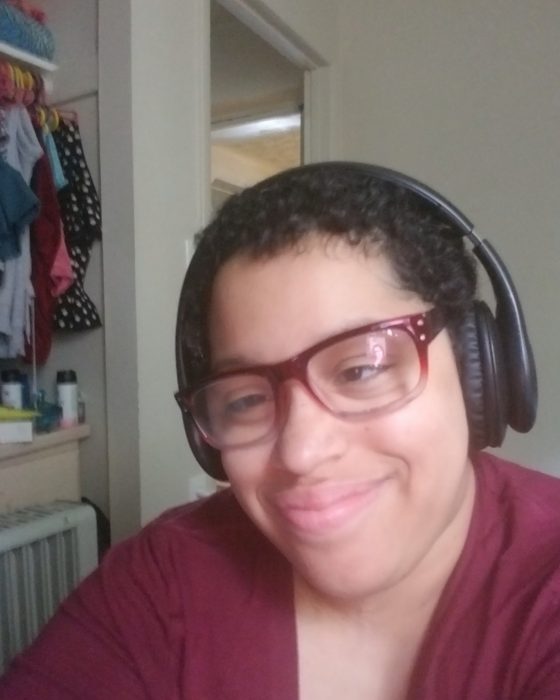I am 33 years old. I am a person with a disability (cerebral palsy), an amputee, a wheelchair user, and an I have an intellectual disability. I am very independent in some aspects of my life. I started a small group in my community and ran it for 10 years. I also became a self-published author when I came out with my first book in 2016, and with my first published writing piece online the following year I started my writing career. In my late 20s, along with my writing career, I now serve as the diversity committee chair at a national organization for people with disabilities. I pride myself on being as independent as possible in my professional life.
As far as independence in my personal life, I have started cooking more with assistance, putting a shirt on by myself, picking my clothes out, brushing my teeth, feeding myself, etc. I can self-direct my care as well. Sometimes I have difficulty communicating my needs, but it is all a work in progress. There are still some things I can’t do on my own entirely, such as transferring to and from my wheelchair or bathing thoroughly. I have come to a place of acceptance with this, accepting that it might not happen.

Recently, I mentioned to my family and aides my desire to move out on my own as the time is right. I would love to initially live locally and eventually in a different state with the proper support in place. They were entirely on board with that as long as I was set up for success and would support me moving out locally first. I have a full-time aide who works during the week and a part-time one for weekends. My full-time aide and I have a relationship and have worked together for four years. She is reliable, but only does the bare minimum. My part-time weekend aide strives to help me become more independent.
After sharing my desire to move out, my full-time aide is on board with helping me become more independent; however, she has made a sudden shift that I didn’t expect because she’s never done it before. Recently, I was dealing with my period, and she assisted me by handing me a pad. What bothered me, however, was her comment, “A roommate will not help you with this.” She showed me how to do it and helped when I needed it, but I would have much rather her ask me if I wanted to do it or show me how to do it properly for next time.
Another time, I asked if she could clean my glasses for me. She put the cleaning solution on a paper towel and handed it to me. And said, “you do it.” I find scenarios like this frustrating because even though I want to be more independent, I would benefit more from more of a transition. Teach me the needed skills and give me time to adapt to the changes. Those with disabilities, whether visible or not and no matter their level of independence, may all need help from time to time. There isn’t and shouldn’t be any shame in that. Aides and support services are there for these exact reasons. Though intentions are usually good, how the message is conveyed is not always clear. We know best what we can and can’t do and if we express a need for help, take our word for it.
To all the aides out there that are wanting their clients to be more independent, I understand you have good intentions, but if we can’t do something, believe us as we know what we are talking about and capable of. Just because we want to live on our own and be independent as possible doesn’t mean we won’t need help sometimes, and that’s not a bad thing.
Yes, I’m disabled and very independent, but if I ask for help, know that I need it.
Getty image by Prostock-Studio

